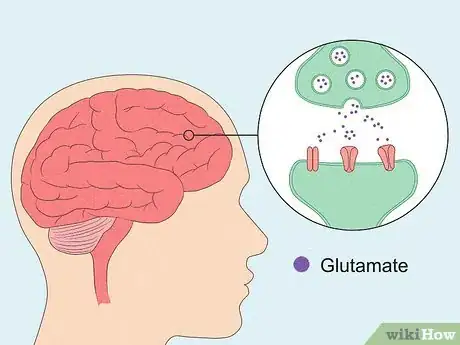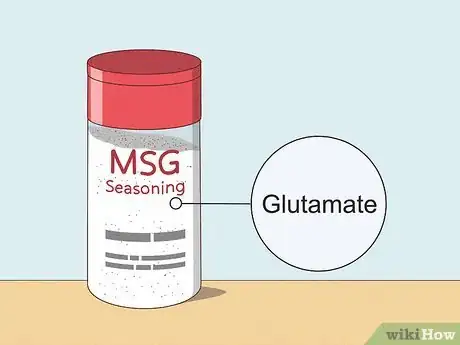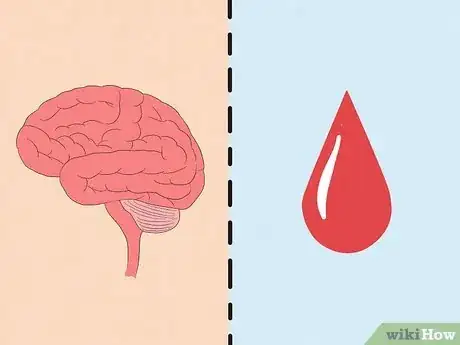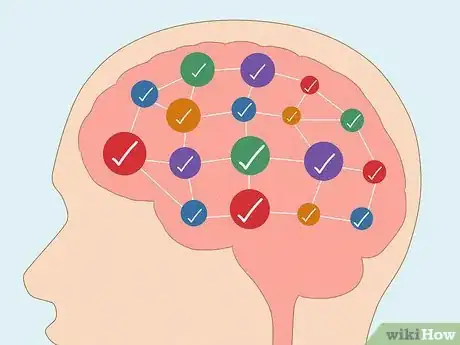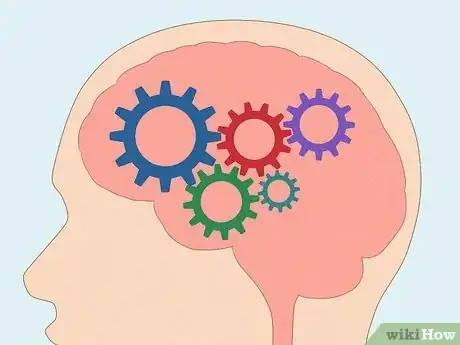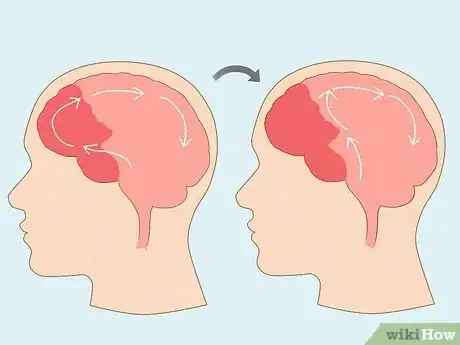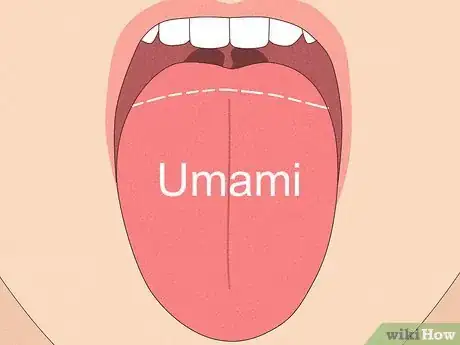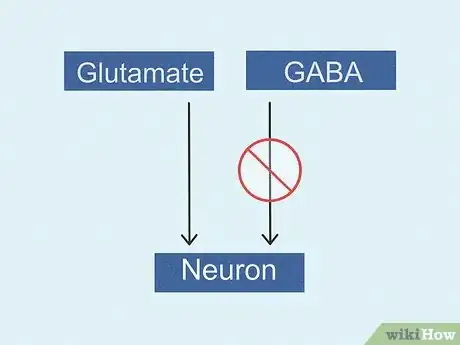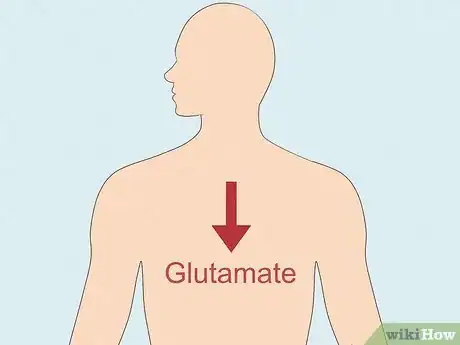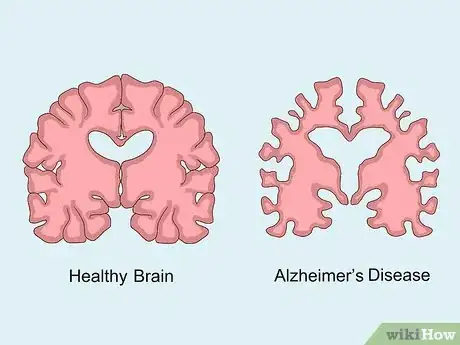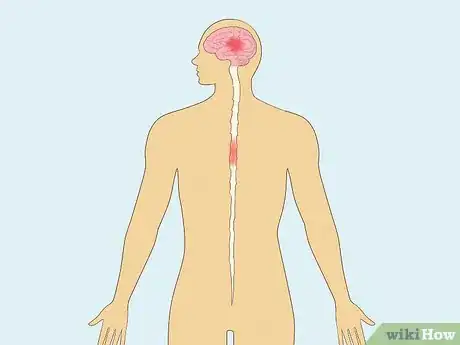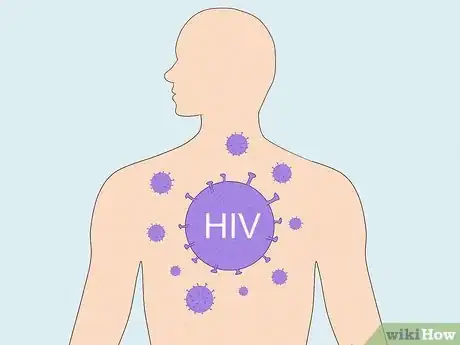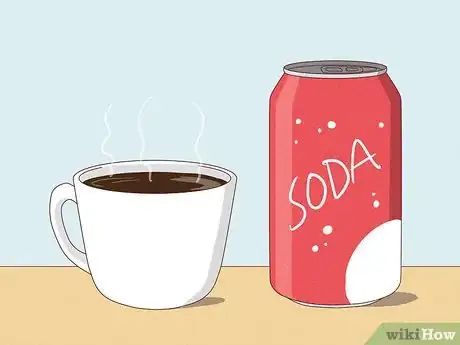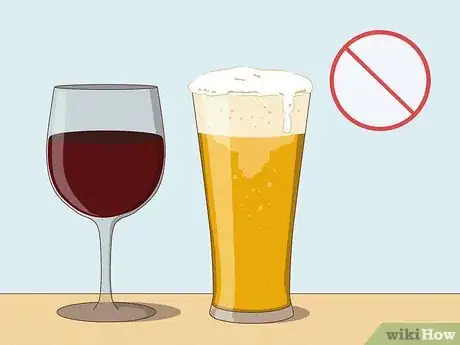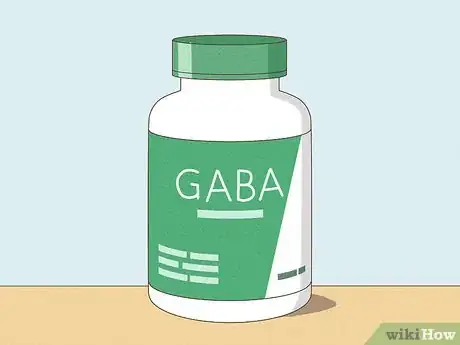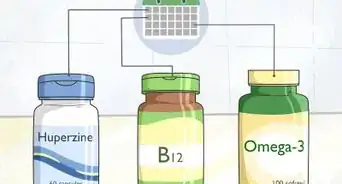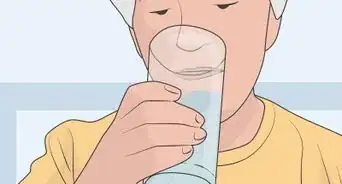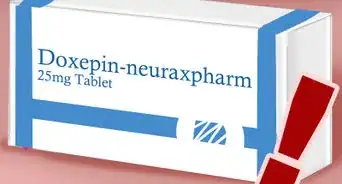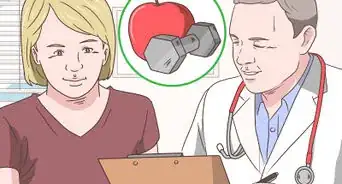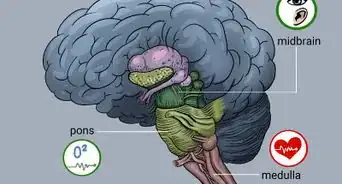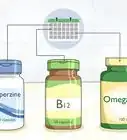This article was co-authored by Mental Health America and by wikiHow staff writer, Jennifer Mueller, JD. Mental Health America is the nation's leading community-based nonprofit dedicated to addressing the needs of those living with mental illness and promoting overall mental health for all. Their work is guided by the Before Stage 4 philosophy – that mental health conditions should be treated long before they reach the most critical points in the disease process.
There are 25 references cited in this article, which can be found at the bottom of the page.
This article has been viewed 5,795 times.
When you hear the word "glutamate," you may think of monosodium glutamate (MSG), the food additive often associated with Americanized Chinese food. But did you know that glutamate is the most abundant amino acid in your brain? There, glutamate's role is primarily to excite other neurons so that they'll carry out their functions.[1] Read on to learn everything you need to know about glutamate, including what happens if you have too much or too little of this amino acid.
Steps
Expert Q&A
-
QuestionWhat are symptoms of low glutamate?
 Kirsten Thompson, MDDr. Kirsten Thompson is a Board Certified Psychiatrist, Clinical Instructor at UCLA, and the Founder of Remedy Psychiatry. She specializes in helping patients with mental health conditions such as major depressive disorder, anxiety, ADHD, bipolar disorder, OCD, PTSD, and postpartum depression. Dr. Thompson holds a BS in Operations Research Industrial Engineering from Cornell University and an MD from The State University of New York, Downstate College of Medicine.
Kirsten Thompson, MDDr. Kirsten Thompson is a Board Certified Psychiatrist, Clinical Instructor at UCLA, and the Founder of Remedy Psychiatry. She specializes in helping patients with mental health conditions such as major depressive disorder, anxiety, ADHD, bipolar disorder, OCD, PTSD, and postpartum depression. Dr. Thompson holds a BS in Operations Research Industrial Engineering from Cornell University and an MD from The State University of New York, Downstate College of Medicine.
Board Certified Psychiatrist Low glutamate is associated with insomnia, mental exhaustion, and low energy.
Low glutamate is associated with insomnia, mental exhaustion, and low energy. -
QuestionWhat are symptoms of high glutamate?
 Kirsten Thompson, MDDr. Kirsten Thompson is a Board Certified Psychiatrist, Clinical Instructor at UCLA, and the Founder of Remedy Psychiatry. She specializes in helping patients with mental health conditions such as major depressive disorder, anxiety, ADHD, bipolar disorder, OCD, PTSD, and postpartum depression. Dr. Thompson holds a BS in Operations Research Industrial Engineering from Cornell University and an MD from The State University of New York, Downstate College of Medicine.
Kirsten Thompson, MDDr. Kirsten Thompson is a Board Certified Psychiatrist, Clinical Instructor at UCLA, and the Founder of Remedy Psychiatry. She specializes in helping patients with mental health conditions such as major depressive disorder, anxiety, ADHD, bipolar disorder, OCD, PTSD, and postpartum depression. Dr. Thompson holds a BS in Operations Research Industrial Engineering from Cornell University and an MD from The State University of New York, Downstate College of Medicine.
Board Certified Psychiatrist Excess glutamate is associated with enhanced pain, anxiety, and difficulty concentrating.
Excess glutamate is associated with enhanced pain, anxiety, and difficulty concentrating. -
QuestionWhat is glutamate used to treat?
 Kirsten Thompson, MDDr. Kirsten Thompson is a Board Certified Psychiatrist, Clinical Instructor at UCLA, and the Founder of Remedy Psychiatry. She specializes in helping patients with mental health conditions such as major depressive disorder, anxiety, ADHD, bipolar disorder, OCD, PTSD, and postpartum depression. Dr. Thompson holds a BS in Operations Research Industrial Engineering from Cornell University and an MD from The State University of New York, Downstate College of Medicine.
Kirsten Thompson, MDDr. Kirsten Thompson is a Board Certified Psychiatrist, Clinical Instructor at UCLA, and the Founder of Remedy Psychiatry. She specializes in helping patients with mental health conditions such as major depressive disorder, anxiety, ADHD, bipolar disorder, OCD, PTSD, and postpartum depression. Dr. Thompson holds a BS in Operations Research Industrial Engineering from Cornell University and an MD from The State University of New York, Downstate College of Medicine.
Board Certified Psychiatrist Different studies have shown success in using glutamate receptor agonists to treat symptoms of Parkinson's, schizophrenia, anxiety, and other psychiatric disorders.
Different studies have shown success in using glutamate receptor agonists to treat symptoms of Parkinson's, schizophrenia, anxiety, and other psychiatric disorders.
References
- ↑ https://www.ncbi.nlm.nih.gov/pmc/articles/PMC4133642/
- ↑ https://www.ncbi.nlm.nih.gov/pmc/articles/PMC4133642/
- ↑ https://www.fda.gov/food/food-additives-petitions/questions-and-answers-monosodium-glutamate-msg
- ↑ https://www.ncbi.nlm.nih.gov/pmc/articles/PMC4133642/
- ↑ https://aci.health.nsw.gov.au/projects/diet-specifications/adult/allergy/glutamate-low
- ↑ https://www.ncbi.nlm.nih.gov/pmc/articles/PMC4515277/
- ↑ https://aci.health.nsw.gov.au/projects/diet-specifications/adult/allergy/glutamate-low
- ↑ https://www.ncbi.nlm.nih.gov/pmc/articles/PMC4133642/
- ↑ https://www.ncbi.nlm.nih.gov/pmc/articles/PMC2764739/
- ↑ https://www.sciencedirect.com/science/article/abs/pii/S0166432802002723
- ↑ http://www.bristol.ac.uk/synaptic/receptors/
- ↑ https://www.ncbi.nlm.nih.gov/pmc/articles/PMC4515277/
- ↑ https://pubmed.ncbi.nlm.nih.gov/12467378/
- ↑ https://www.sciencedaily.com/releases/2017/08/170802152544.htm
- ↑ https://www.nature.com/articles/s41380-018-0252-9
- ↑ https://medlineplus.gov/genetics/condition/glutamate-formiminotransferase-deficiency/#description
- ↑ https://rarediseases.org/gard-rare-disease/glutamate-formiminotransferase-deficiency/
- ↑ https://www.ncbi.nlm.nih.gov/pmc/articles/PMC2764739/
- ↑ https://hopes.stanford.edu/about-glutamate-toxicity/
- ↑ https://www.als.org/research/research-we-fund/scientific-focus-areas/disease-mechanisms
- ↑ https://link.springer.com/article/10.1007/s11481-013-9442-z
- ↑ https://www.sciencedirect.com/topics/neuroscience/excitotoxicity
- ↑ https://dana.org/article/protecting-the-brain-from-a-glutamate-storm/
- ↑ https://www.als.org/research/research-we-fund/scientific-focus-areas/disease-mechanisms
- ↑ https://www.jneurosci.org/content/36/8/2449
- ↑ https://www.bu.edu/articles/2021/moderate-vigorous-exercise-boosts-fitness/
- ↑ https://learn.genetics.utah.edu/content/addiction/brainpathways/
- ↑ https://health.clevelandclinic.org/how-much-caffeine-is-too-much/
- ↑ https://learn.genetics.utah.edu/content/addiction/brainpathways/
- ↑ https://www.biomolther.org/journal/view.html?uid=948&vmd=Full
- ↑ https://www.drugs.com/npp/taurine.html
- ↑ https://www.mcgill.ca/oss/article/health/gaba-supplements-glorious-gimmicky-or-just-garbage
- ↑ https://www.ncbi.nlm.nih.gov/pmc/articles/PMC8399837/
